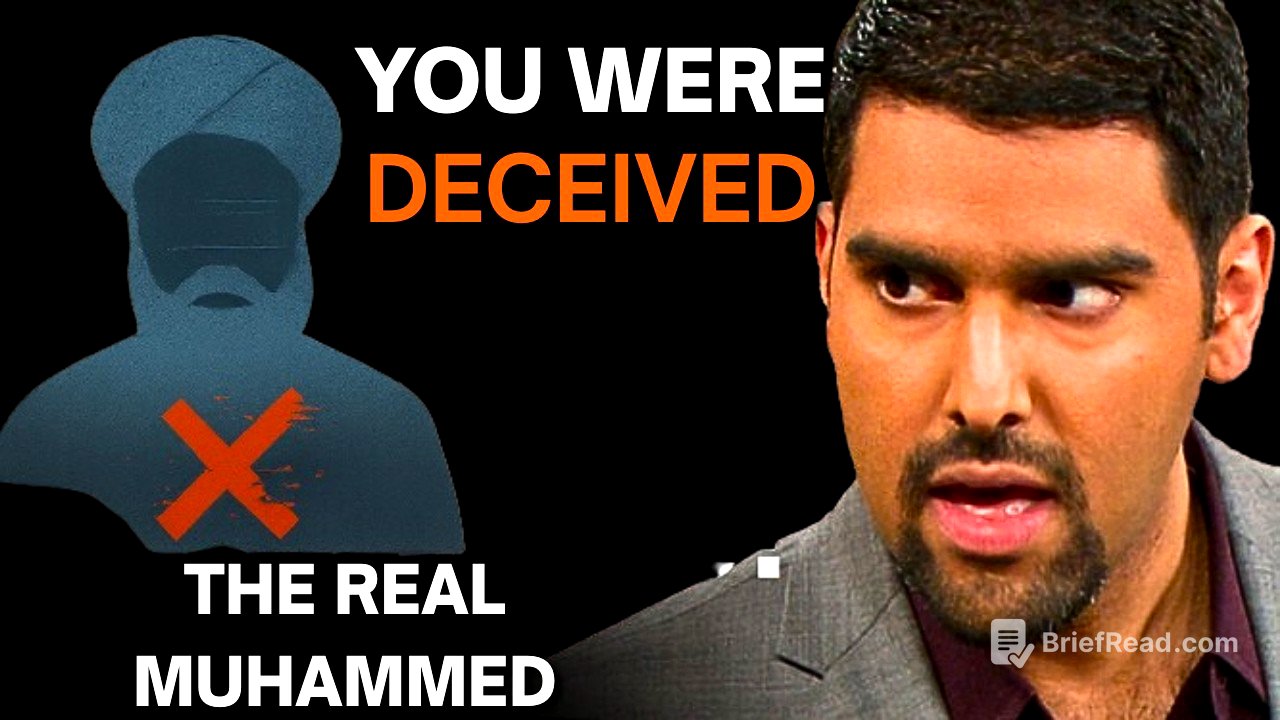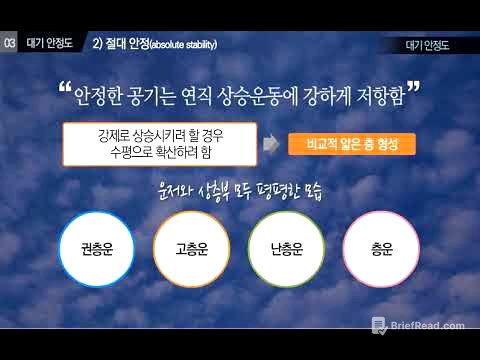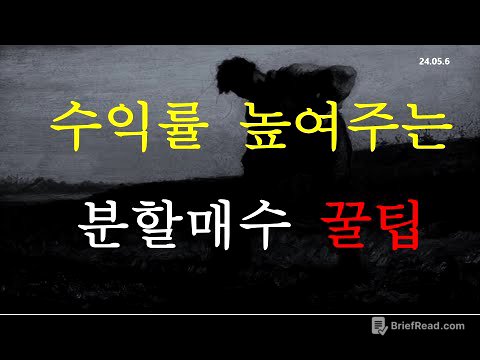TLDR;
Nabil Koreshi, a former Muslim, shares his journey of questioning and ultimately rejecting the narratives he was raised on regarding Islam. He discusses the violent aspects of the Quran and Muhammad's life, the concept of jihad, and Sharia law. Koreshi highlights the difference between Islam as a system and Muslims as individuals, and how his search for truth led him to Christianity.
- The traditional understanding of Islam often differs from the historical reality of Muhammad's actions and the teachings within the Quran.
- The concept of jihad is complex, with interpretations ranging from internal spiritual struggle to physical warfare.
- Sharia law is a comprehensive legal and social system that governs many aspects of Muslim life, but its interpretation and implementation vary.
- The rise of the internet allows individuals to directly access and interpret Islamic texts, leading to diverse reactions, including radicalization, apostasy, and nominal adherence.
- Koreshi ultimately converted to Christianity due to the stark contrast between Jesus' teachings and actions and those of Muhammad, particularly regarding claims of divinity and the use of violence.
Introduction [0:00]
Nabil Koreshi, raised in a devout Muslim household, describes his initial understanding of Islam as a religion of peace. However, upon closer examination of the original teachings and the life of Muhammad, he encountered significant discrepancies that caused him to question his faith. This led him to seek the truth from God and eventually convert to Christianity.
Muhammad's Teachings and the Escalation of Violence [1:05]
Initially, Muhammad preached monotheism and advocated for the care of widows and orphans. However, after his move to Medina, he gained military power and initiated raids, leading to an escalation of violence throughout his life. Sura 9 of the Quran is highlighted as particularly violent, disavowing treaties with polytheists, Jews, and Christians, and instructing Muslims to fight unbelievers. Verses within this Sura encourage fighting until subjugation and the payment of money, promising heaven to those who die in jihad. This period of unlimited warfare enabled Muslims to conquer a significant portion of the known world within a relatively short time.
The Modern Invention of "Islam is a Religion of Peace" [3:11]
The phrase "Islam is a religion of peace" is a modern invention, not found in the Quran, Hadith, or early Islamic literature. It originated in the 20th century among Indian Muslims interacting with British culture. While many Muslims are peaceful, the claim that Islam itself is a religion of peace is problematic due to the historical prevalence of military conflict and the teachings within Islamic texts.
The Reality of Jihad [4:33]
The traditional narrative of Muhammad only fighting defensive battles is challenged by historical evidence of raids and conquests. While rules of jihad were codified after Muhammad's death, they include both defensive and offensive justifications, such as defending Muslims or advancing the Islamic faith. These rules also stipulate that jihad should be launched by a recognized leader, which has been a point of contention in the Islamic world, particularly with the rise of ISIS.
Navigating the Complexities of Jihad [6:57]
Speaking about jihad is a charged issue, with the risk of accusations of Islamophobia if its reality is acknowledged, or leaving society vulnerable if it is ignored. Koreshi decided to address the topic after the Paris attacks, feeling the need for a charitable yet truthful perspective. His approach aims to be objective, focusing on the origins of Islam and the texts themselves, rather than imposing a Christian perspective.
The Impact of 9/11 and the Search for Truth [8:32]
The events of September 11th served as a catalyst for Koreshi's deeper investigation into Islam. He realized that the explanations provided for the terrorist acts were rooted in Islamic teachings. This led him to examine the Quran and Muhammad's life more objectively, uncovering a violent reality within Islam.
Islam as a System vs. Muslims as Individuals [9:56]
Islam is a complex system encompassing political, socio-religious, and legal aspects, while Muslims are diverse individuals with varying beliefs and interpretations. Just as Christians hold different beliefs despite the Bible, Muslims also differ in their understanding and practice of Islam. Koreshi emphasizes the importance of treating Muslims with respect as image-bearers of God, while still being able to critique Islam as a system.
Understanding Jihad and Sharia Law [11:37]
Jihad means "struggle," but in the Quran, it primarily refers to physical, violent struggle. Islamic tradition and Sharia law have formalized jihad as fighting for the defense or propagation of Islam. Sharia law, meaning "the way," provides a comprehensive guide for Muslim life, covering various aspects of behavior and worship. Different schools of Islamic law have developed, each with slightly different interpretations of Sharia.
The Impact of the Internet on Islamic Interpretation [14:50]
The internet has made it easier for individuals to access and interpret the Quran and Hadith directly, bypassing traditional schools of thought. This has led to three main reactions: becoming nominal, leaving Islam, or becoming radicalized. The violence found in Islamic texts can lead some to abandon the faith, while others may embrace it more fervently.
Reimagining Islam and the Path to Christianity [15:57]
Koreshi suggests that a true reformation of Islam would involve going back to its origins, which are inherently violent. He contrasts this with the Christian reformation, which focused on the peaceful teachings of Jesus. Ultimately, Koreshi converted to Christianity because of Jesus' claim to be God, which is explicitly denied in Islam. He saw a stark contrast between the actions and teachings of Jesus and Muhammad, particularly regarding violence.
The Claims of Christ [17:07]
The fact that Jesus claimed to be God was a pivotal point for Koreshi, especially considering the Islamic faith strictly denies this. Studying Jesus' life and teachings, particularly his rejection of violence, led Koreshi to embrace Christianity. He emphasizes the significance of God becoming man and the concept of God as a loving father, which is also denied in Islam.
A Message to Muslims [18:09]
Koreshi encourages Muslims to approach the search for truth with an open mind, not as a battle between people, but as a journey to find God together. He urges them to pray and ask God to reveal himself, contrasting the Islamic concept of Allah remaining behind a veil with the Christian belief that God will reveal himself to those who seek him.









